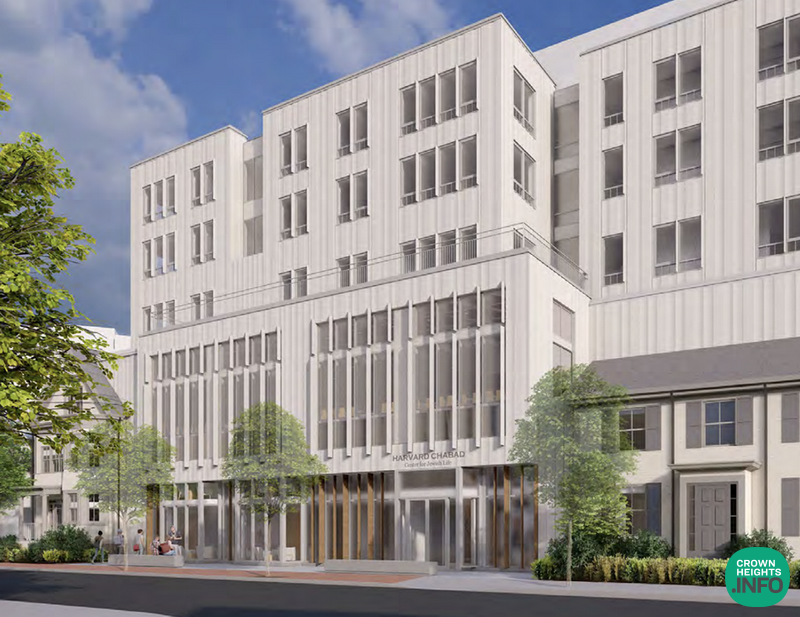
Details Begin To Emerge On Harvard Chabad Settlement, $540,000 Payout and Legislative Sessions On Zoning Law Changes
by CrownHeights.info
The settlement made between the City of Cambridge and Harvard Chabad isn’t public, but some of the details have begun to trickle out, including a cash payment of $540,000 and legislative sessions geared towards making sure that what happens to Chabad doesn’t happen again.
According to the Cambridge Day, City manager Yi-An Huang asked the City Council to approve taking the $540,000 payout from “free cash,” the city’s surplus fund, the first public sign there were financial terms involved in the settlement.
But that isn’t even all.
According to the same article which broke news of the cash settlement, another portion of the agreement has surfaced; the requirement that the city’s legislative body schedule hearings to discuss amending zoning ordinances that were the source of the issue to begin with.
Yehudah Buchweitz, a lawyer for Harvard Chabad, said the agreement isn’t yet finalized as Cambridge must do “several things” in the “coming months” before it is complete. According to Cambridge Day, this includes Chabad getting their final building permit for its planned construction.
In September of 2024, Harvard Chabad filed suit against that city and its Board of Zoning Appeal, alleging religious discrimination over its denial of a zoning variance to renovate its Chabad House.
Chabad currently owns three buildings in adjacent lots, but each building, individually, is far too small to host its whole congregation and offer a full panoply of events, including prayers, Shabbos meals and other programs. Without a full-sized and fully functional religious center, Chabad claimed it has been forced to host these events outside, under a tent, even in the rain and in the freezing Massachusetts winters.
“Having a thriving religious center for Jews in Cambridge is imperative, especially now, when Jewish institutional presence is ‘sparse’ in the area and antisemitism is exploding,” says the suit, filed last week in U.S. District Court against the city and its Board of Zoning Appeal.
Chabad said the issue “could easily have been remedied with the renovations that Chabad proposed, in which it would build a connection between two of its three buildings, and with a Floor Area Ratio variance that Defendants routinely grant to similarly-situated applicants, both religious and non-religious.” However, the suit says, opponents “claimed that Chabad’s proposal for a fully-functional Jewish institution in the neighborhood would cause a ‘nuisance,’ that Chabad was greedily asking for a ‘handout,’ and that it simply should go elsewhere. One group engaged lawyers and PR consultants to cleanse its submissions of any overt signs of discriminatory intent; but the content of their messages and the intensity of their opposition made their true motivation clear,” namely that “they succumb[ed] to anti-religious opposition from Chabad’s opponents,” and that “their statements on the record reveal their personal discriminatory intent.”
The suit alleges that the Board of Zoning Appeal chairman specifically arranged to have a particular member who was a vocal opponent of Chabad’s plans sit for the hearing on Chabad’s case, knowing she would be the decisive vote against the plan.
Chabad alleged in the lawsuit that the city was in violation of the federal Religious Land Use and Institutionalized Persons Act (RLUIPA), which prohibits zoning laws that substantially burden religious exercise; and the U.S. Constitution’s First and Fourteenth Amendment protections of free exercise of religion, due process, and equal protection; as well as provisions of Massachusetts’ Constitution and Civil Rights Act.
The case went to court, and recently ended with this settlement that allowed for the Chabad House’s expansion, and apparently much more.
Rabby Hirschy Zarchi, Chabad shliach to Cambridge, told Hamodia in 2024 that 300 to 400 people make use of his Chabad House on a typical Shabbos, “and many more throughout the week.” The core community is Harvard students, but there are hundreds of others including students from MIT and other schools, as well as residents and families, including 225 children enrolled in its preschool.











